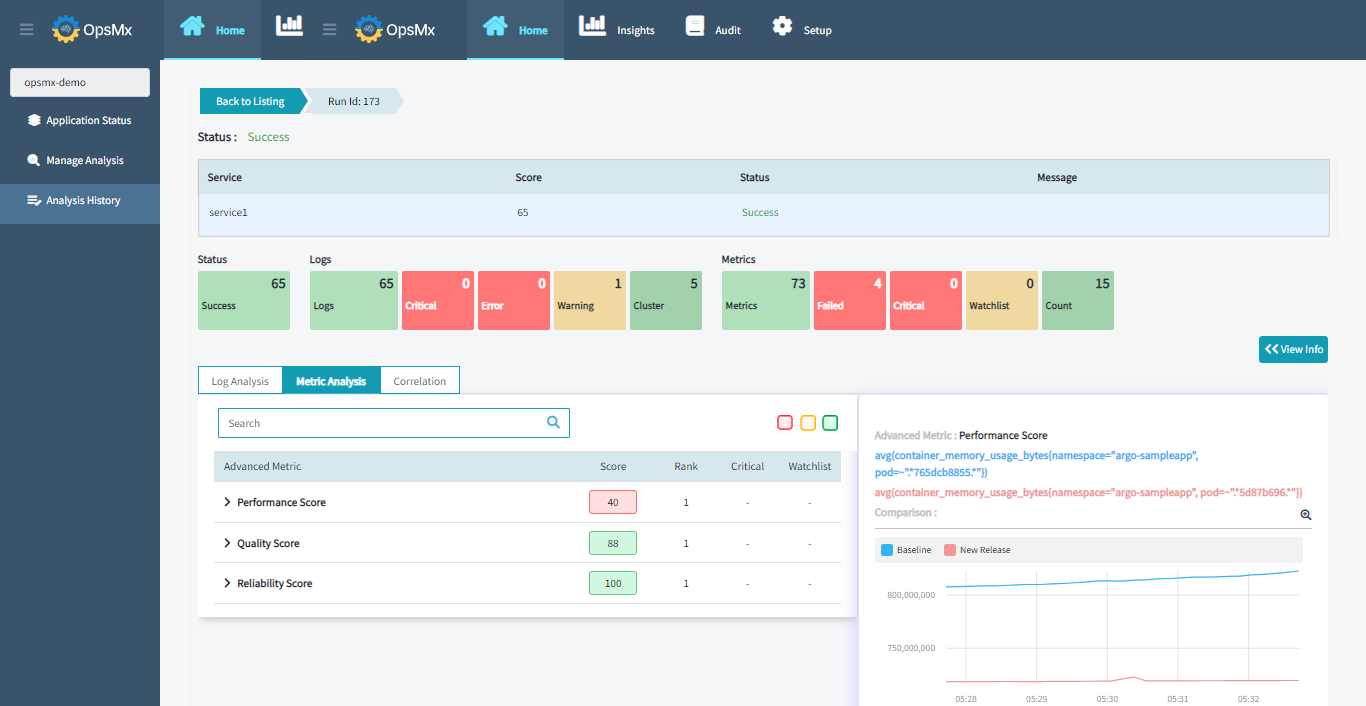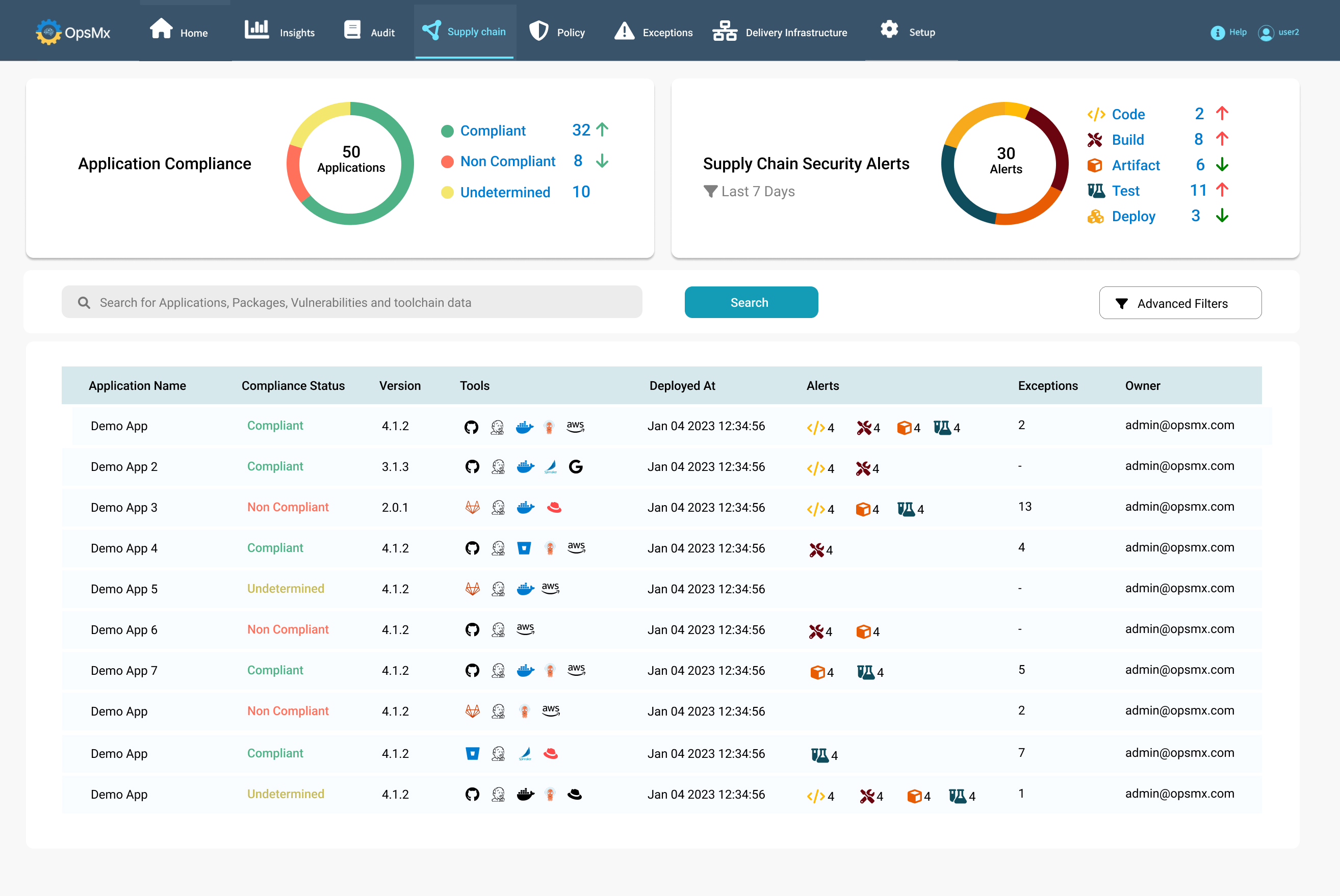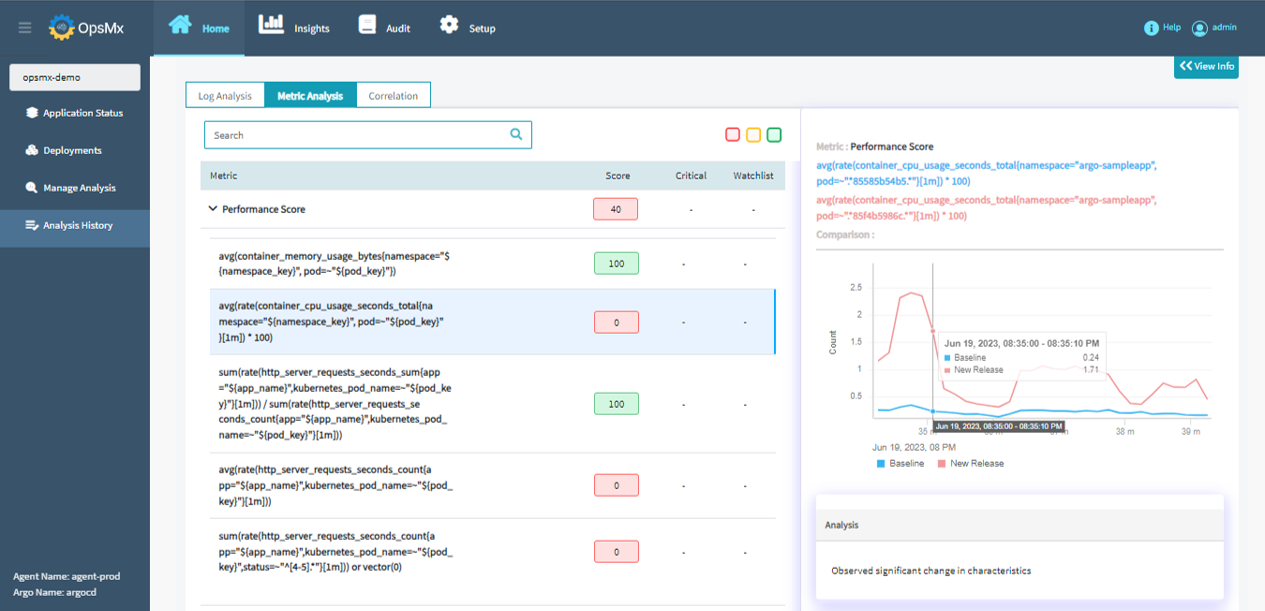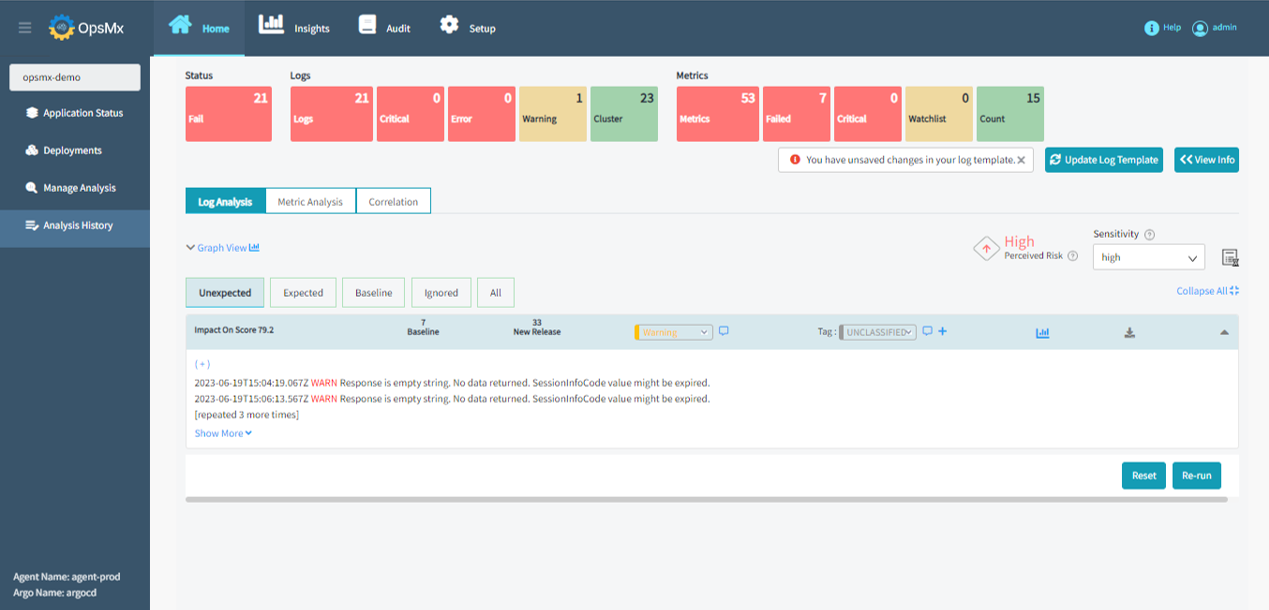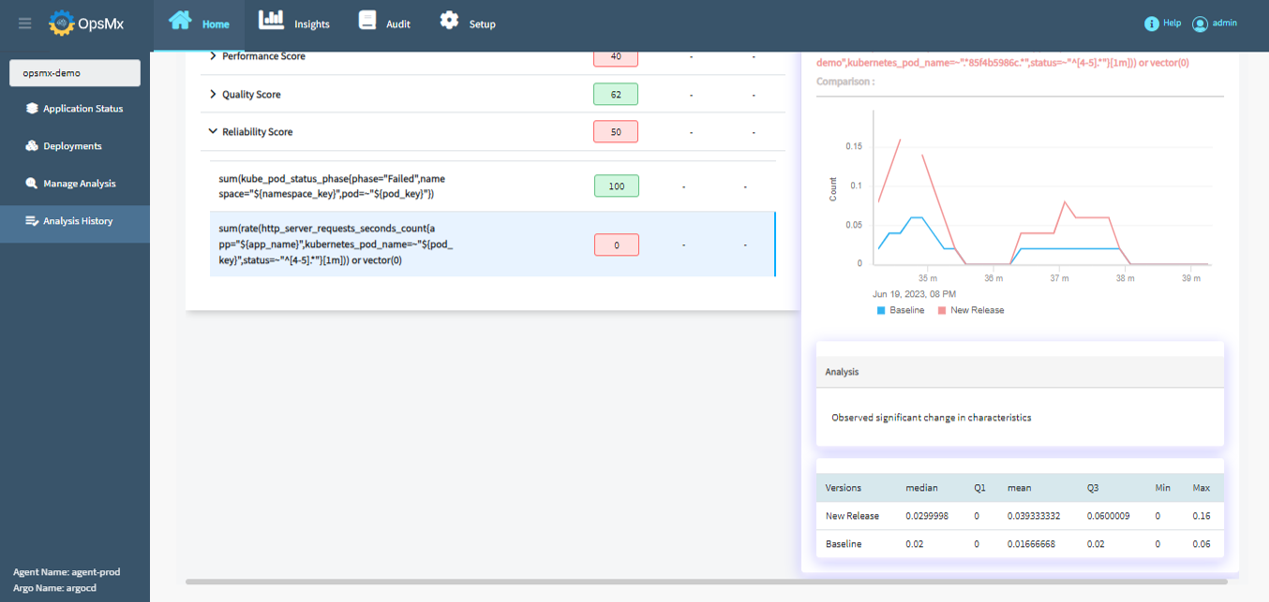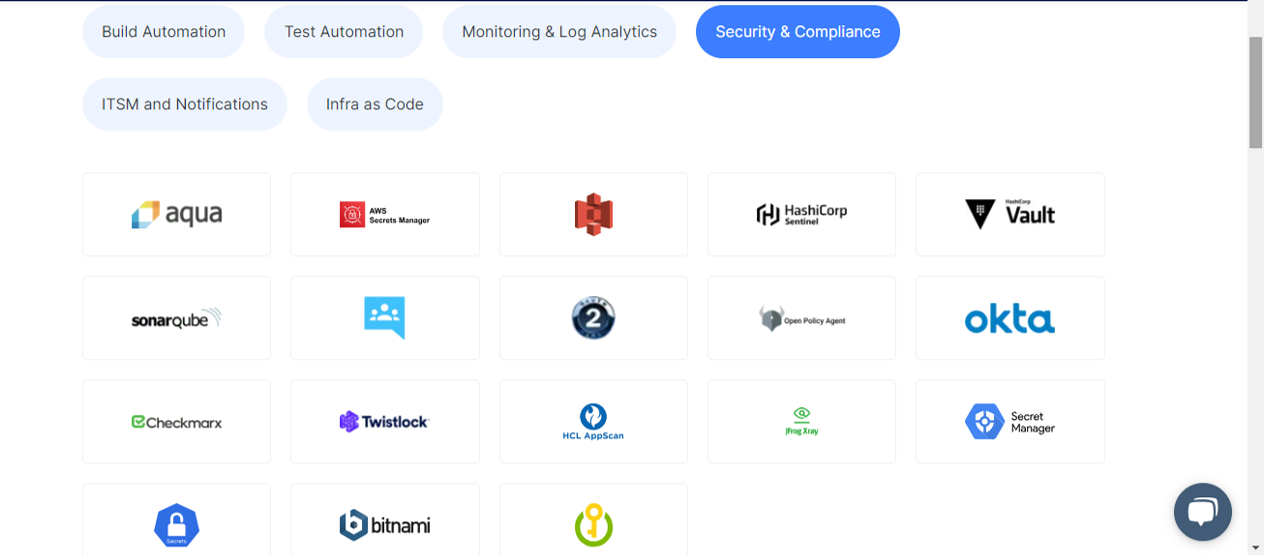Continuous Risk Assessment
Software delivery speed has increased by many folds due to CI/CD pipelines. Risk assessment of software is performed manually by the SREs and Ops team. The manual process can be tedious, time-consuming and often impacts the lead time of software.
SSD helps enterprises to perform a continuous risk assessment of each software in seconds instead of hours and fastens the go/no-go decisions. SSD gathers a variety and volume of data in real-time and provides software risks from various dimensions such as security, performance, quality, and reliability.
Continuous Risk Assessment Capabilities
OpsMx ISD compliments Azure DevOps and co-exists with it to address some of the limitations around scalability and ease of use, and brings significant automation and intelligence to the deployments triggered by Azure DevOps. Some of these value additions include but are not restricted to the following.
Risk Assessment of Releases at Scale
SSD automatically collects logs and metrics and applies NLP and unsupervised machine learning to calculate the overall risk score of new deployments. SSD summarizes the risk assessment results as a set of easy-to-understand scores that you can use to guide the next steps in the release process or implementing deployment strategies such as canary.
Security Risk
Get holistic information about each deployment’s security vulnerabilities at various delivery stages- source, build, artifact, & deploy. SSD provides an application risk score by analyzing the security risk of a service and its dependencies. The exact posture of application supply chain security helps the DevSecOps team formulate critical decisions for the software delivery process.
Performance Risk
SSD provides risk assessment wrt to performance-related metrics of a new deployment, such as CPU utilization, memory utilization, latency, throughput, etc. Apart from rollout decisions, metrics risk scores help the DevOps team plan deployments of applications with specific performance requirements.
Quality Risk
Avoid any laborious task of going through the massive logs to identify the errors of a new deployment. SSD looks at error rates, such as 400 errors and customer application errors, at the application, service, and API level, detects unexpected errors in the logs, and provides a cumulative quality risk score of log analysis. SREs can share the quality risk scores as feedback to developer teams in seconds.
Reliability Risk
SSD looks at apparent application failures and degradation of system resources, such as memory and disk access, during application operation. It compares metrics such as new and baseline deployment pod response rates and provides reliability scores that SREs can use in their deployment planning.
Key Benefits
3X Less Change Failure Rates
Obtain 80% fewer production issues through frequent monitoring of security, performance, and quality vulnerabilities in applications at every phase of the software delivery process.
90% Reduction in MTTR
Analyze thousands of metrics and logs in a matter of seconds. Identify the root cause of an issue and provide feedback to developers.
Upto 70% Productivity Gain
Save tremendous amounts of SREs and DevOps time by manually gathering the data from multiple platforms and tools to identify the risk of an application. Fasten the decision-making process with continuous risk assessment reports.
Resources
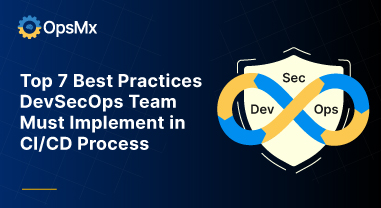
Top 7 Best Practices DevSecOps Team Must Implement in CI/CD Process
Learn how to prevent security vulnerabilities in cloud and container applications by implementing best practices of DevSecOps in the software delivery process
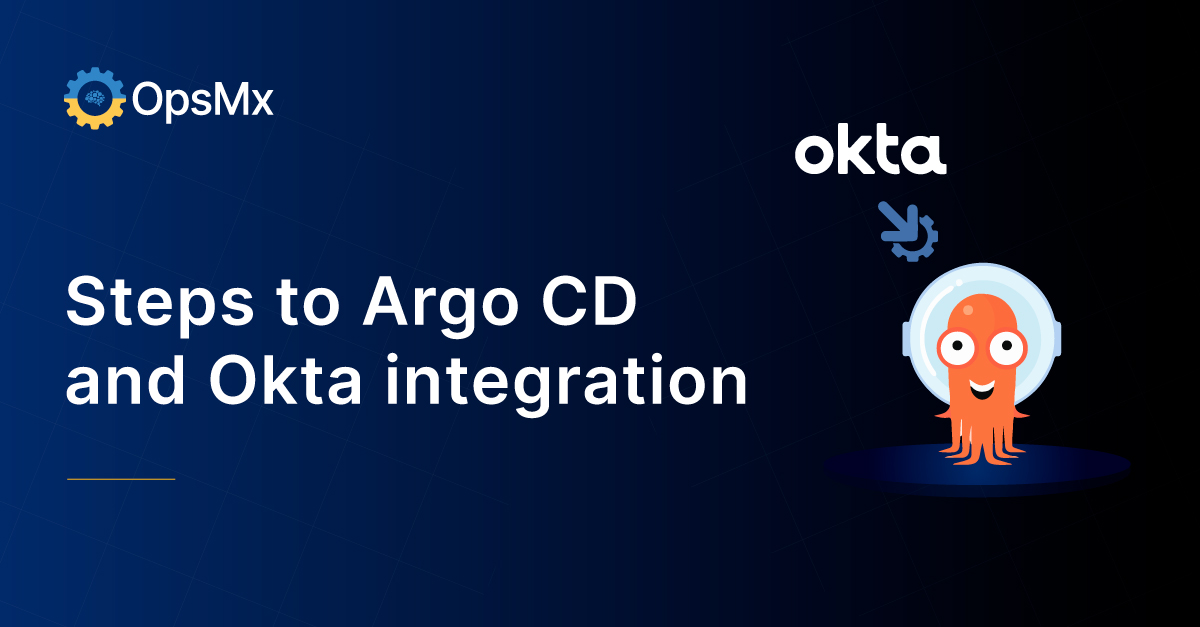
Automating Verification of Progressive Deployments with Argo Rollouts and OpsMx
Learn how to perform automated verification of new deployments using Argo Rollouts and OpsMx SSD. Ensure you are delivering higher quality releases into production with zero vulnerabilities.
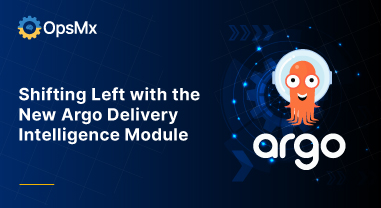
Shifting Left with the New Argo Delivery Intelligence Module
Empower SRE and DevOps team to perform automated verification of Kubernetes application in the GitOps delivery process using AI/ML.
OpsMx is
Trusted By
KEEP UP TO DATE WITH OPSMX
Be the first to hear about the latest product releases, collaborations and online exclusive.

